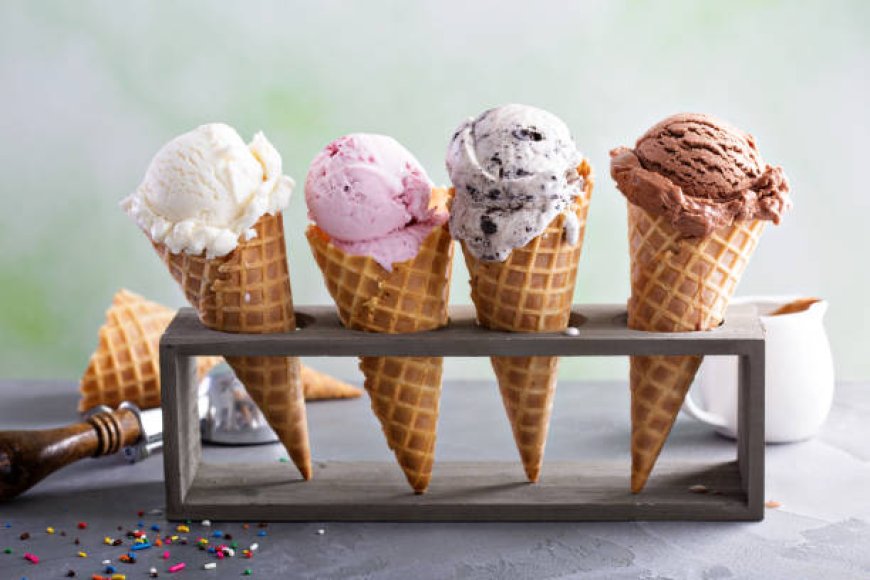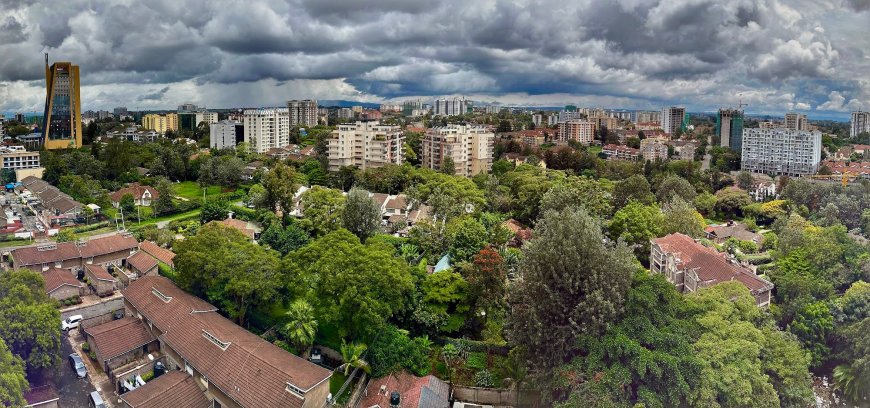EXPOSED: School Children Being Drugged After Eating Ice Cream In Nairobi
This was revealed on Friday, May 16, by Nairobi County's Chief Officer for Environment, Geoffrey Mosiria, who revealed that he received complaints over the suspected sale of laced ice cream to students.

A shocking finding has emerged of school-going children consuming ice cream purchased from street vendors in Nairobi's Kilimani and later showing unusual behaviour that includes appearing drunk.
This was revealed on Friday, May 16, by Nairobi County's Chief Officer for Environment, Geoffrey Mosiria, who revealed that he received complaints over the suspected sale of laced ice cream to students.
Mosiria exposed an ice cream 'mwitu' vendor next to a school in Kilimani along Riara Road, who has been accused of selling ice cream to school-going children, which is suspected to be laced with addictive substances.
"As a result, some children have reportedly exhibited unusual behaviour such as appearing drunk, overly hyperactive, or excessively sleepy when they return home," revealed Mosiria.

Aerial view of Kilimani Estate. /MEDIUM
The CEC moved into action and headed to the scene, only to find out that the vendor was nowhere to be seen, and all that was discovered was a used bottle and packaging of Ketamine Hydrochloride Injection. This is a fast-acting anaesthetic used mainly for starting and maintaining anaesthesia during medical procedures. It is known for producing a trance-like state that includes pain relief, sedation, and memory loss.
Unlike many anaesthetics, ketamine doesn’t suppress breathing or heart function as much, which makes it useful in emergency settings, especially for trauma or in situations where full anaesthesia equipment is not available. It is often used in hospitals, field medicine, or veterinary care.
Ketamine also affects certain brain chemicals like glutamate, which is why it's being explored for mental health treatment, particularly in low doses for severe depression and Post-Traumatic Stress Disorder (PTSD). However, in the clinical setting, when given as an injection, it is primarily for short-term surgical anaesthesia or pain control.
However, because of its dissociative and hallucinogenic effects, ketamine has a history of abuse as a party drug (often called "Special K"). That is why its use is tightly controlled and monitored in medical settings.
"This is highly concerning, as we suspect ketamine may be one of the substances being mixed into the ice cream sold to children and other unsuspecting consumers," added Mosiria.
On May 27, 2025, the National Authority for the Campaign Against Alcohol and Drug Abuse (NACADA) announced a nationwide crackdown on bars and alcohol dispensing locations near educational facilities, including schools, explaining that it was aimed at enforcing regulations regarding the placement of bars and other alcohol dispensing outlets in proximity to educational institutions or areas catering to individuals below the age of 18.
Popularity Of Ice Cream In Kenya
Ice cream has grown in popularity in Kenya over the years, especially in urban areas and among the younger population. While traditionally considered a luxury or special-occasion treat, it is becoming more common due to rising disposable incomes, increased urbanisation, and the influence of Western food culture.
Shopping malls, fast-food outlets, and cafes in major cities like Nairobi, Mombasa, and Kisumu frequently offer a variety of ice cream options, and local brands have stepped up to meet growing demand.
Kenya's warm climate also makes ice cream an attractive refreshment, particularly during the hot seasons. This demand has led to a rise in both locally made and imported ice cream products, with more vendors setting up kiosks or mobile carts in public places like parks, schools, and markets.
That said, affordability remains a barrier in rural areas, where access to ice cream is more limited, and refrigeration infrastructure can be lacking. Still, the overall market is expanding, especially as local entrepreneurs and startups explore affordable, locally flavoured options that appeal to Kenyan tastes.







